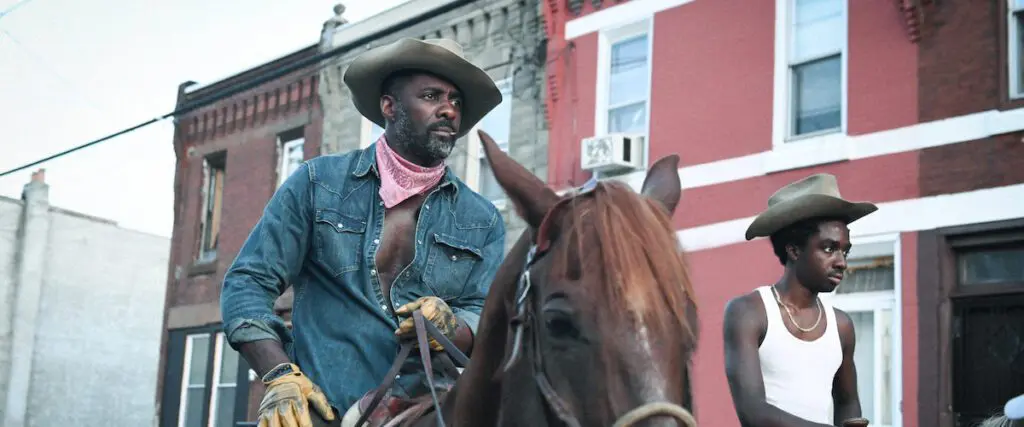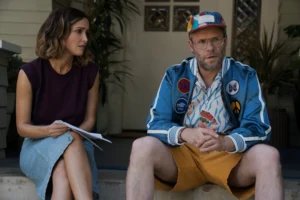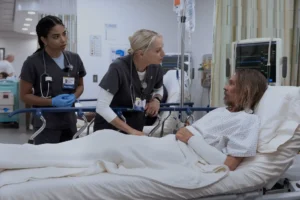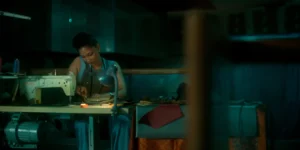This article contains major spoilers for the Concrete Cowboy ending.
Adapted from Greg Neri’s 2011 novel Ghetto Cowboy, Ricky Staub’s impressive debut feature tells a story of father-son bonding against the backdrop of Black inner-city cowboy culture, and despite an overabundance of cliches, it’s a pretty good time. It also has worth in how it shines a spotlight on a valuable subculture that gives disenfranchised people a sense of purpose, belonging, and tradition, even in the midst of an urban sprawl that more often than not leaves them feeling surplus to requirements – or dead on a street corner.
Stranger Things’ Caleb McLaughlin plays Cole, a troubled kid whose mother Amahle (Liz Priestley) drops him on the stoop of his estranged father Harp (Idris Elba) for the summer. Harp is well-versed in the struggles of the kids who hang around the Fletcher Street Stables, but he’s unfamiliar with his own son – them learning to understand each other forms the emotional spine of the film, with the help of some overly familiar devices such as a broken kid finding purpose and connection in a broken animal, in this case, an unruly horse named Boo.
But Harp isn’t the only influential figure in this new setting – Cole’s cousin Smush (Jharrel Jerome) is determined to drag him into the life of crime his own father escaped from years ago. That life cost Harp his bond with Cole in the first place, since he was ducking charges when Cole was born and eventually served time after Amahle had no choice but to rat him out. These revelations come out during a well-acted sequence that helps both characters to understand each other better, but it’s far from the end of Concrete Cowboy.
Most of what transpires revolves around Smush, since he represents not just a bad influence for Cole but also a great failure for Harp since he used to be part of the stables. The horse Harp keeps in his home once belonged to him. But any hope of him returning to that lifestyle are quashed when Smush’s grandiose dreams of making his way out of the street life get him killed by the local drug lord, right in front of Cole. It’s an obvious development, but it’s also a harsh lesson for Cole.
Things don’t go especially well for the Fletcher Street Stables either once the city officials, after many warnings, shut them down for alleged malnourishment and mistreatment of the animals. This leads to a somewhat contrived finale in which Harp and Cole, with the help of Method Man’s cop character Leroy, stage a heist to retrieve their missing nags. Emotionally speaking, though, the Concrete Cowboy ending sticks the landing, both in the fiction, as Cole happily reunites with his mother, and in a coda sharing the stories of the real riders – many of whom star in the film – who have been displaced by gentrification and are still looking for a new place to call home.




